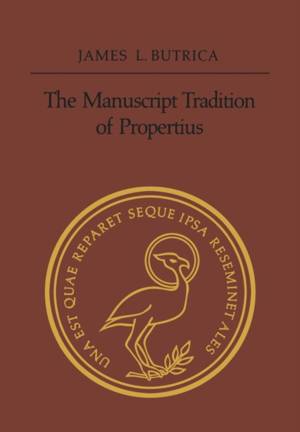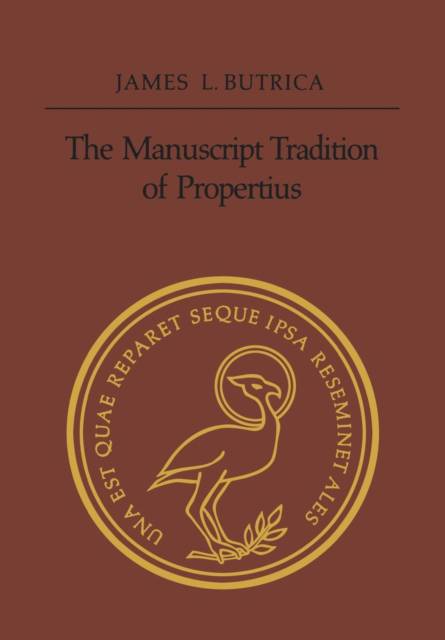
- Retrait gratuit dans votre magasin Club
- 7.000.000 titres dans notre catalogue
- Payer en toute sécurité
- Toujours un magasin près de chez vous
- Retrait gratuit dans votre magasin Club
- 7.000.0000 titres dans notre catalogue
- Payer en toute sécurité
- Toujours un magasin près de chez vous
Description
The elegist Sextus Propertius (ca 50-ca 16 BC) is generally reckoned among the most difficult of Latin authors. At the root of this difficulty lies a deeply corrupt text and uncertainty over the manuscript transmission; moreover, the manuscripts used in the standard editions of today have been selected without a comprehensive examination of the surviving copies. This study, the fullest survey of the manuscripts so far, considers the affiliation of more than 140 complete or partial witnesses and offers a thorough reassessment of the tradition. The principal novelty is the argument that six Renaissance copies represent an independent third witness to the archetype, revealing passages where corruptions, glosses, or medieval corrections are now accepted as the words of Propertius and suggesting that the archetype was far more corrupt than now commonly supposed. The study is in two parts. In Part One, after a survey of Propertius' fortuna in the Middle Ages, the author considers the affiliation and history of the known manuscripts and editions to 1502, then offers a text and revised apparatus of four elegies; in Part Two he presents detailed descriptions of 143 manuscripts, most of them from personal inspection.
Spécifications
Parties prenantes
- Auteur(s) :
- Editeur:
Contenu
- Nombre de pages :
- 384
- Langue:
- Anglais
- Collection :
Caractéristiques
- EAN:
- 9781442652293
- Date de parution :
- 15-12-84
- Format:
- Livre broché
- Format numérique:
- Trade paperback (VS)
- Dimensions :
- 170 mm x 244 mm
- Poids :
- 612 g

Les avis
Nous publions uniquement les avis qui respectent les conditions requises. Consultez nos conditions pour les avis.






